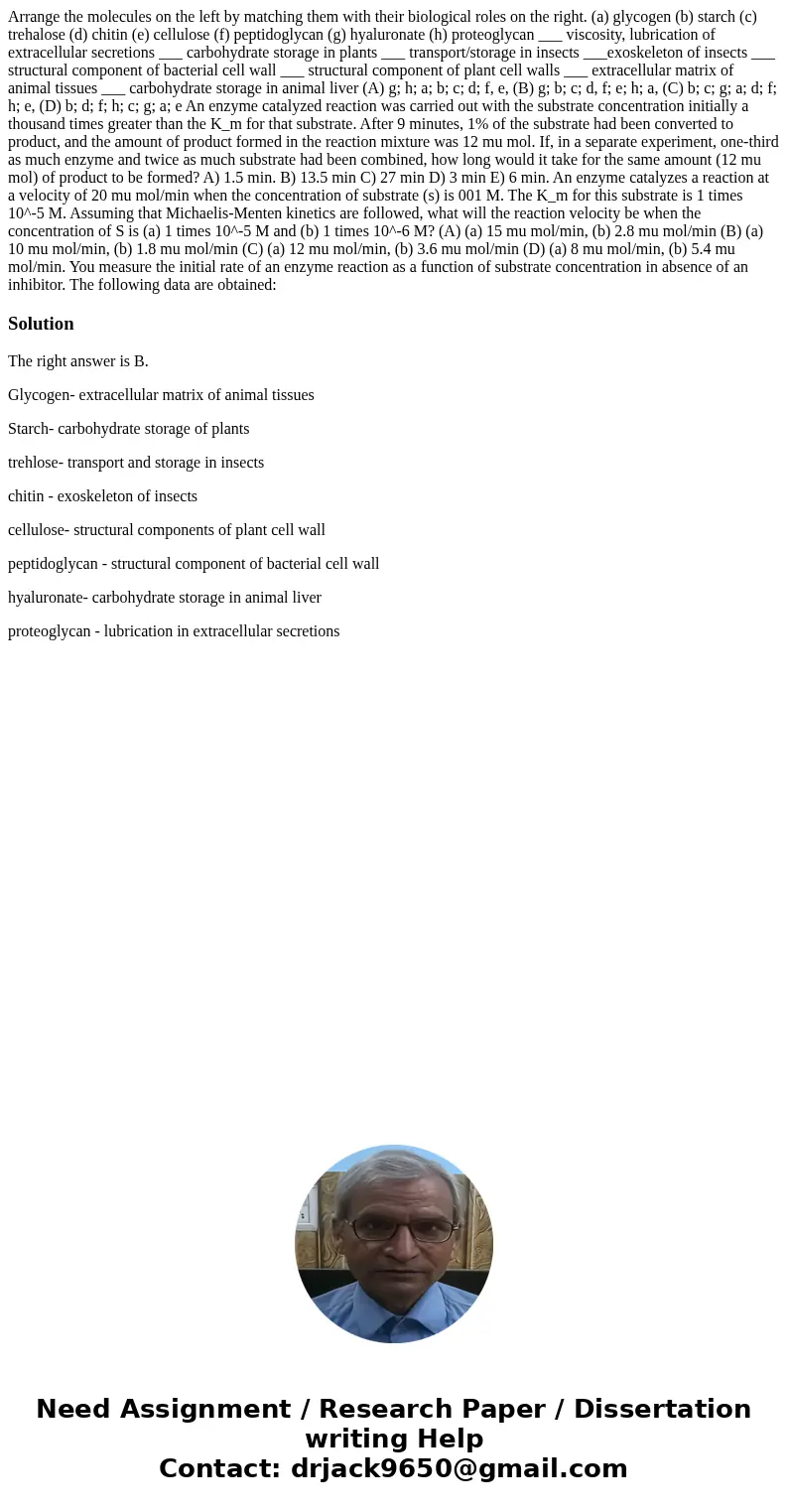Arrange the molecules on the left by matching them with thei
Arrange the molecules on the left by matching them with their biological roles on the right. (a) glycogen (b) starch (c) trehalose (d) chitin (e) cellulose (f) peptidoglycan (g) hyaluronate (h) proteoglycan ___ viscosity, lubrication of extracellular secretions ___ carbohydrate storage in plants ___ transport/storage in insects ___exoskeleton of insects ___ structural component of bacterial cell wall ___ structural component of plant cell walls ___ extracellular matrix of animal tissues ___ carbohydrate storage in animal liver (A) g; h; a; b; c; d; f, e, (B) g; b; c; d, f; e; h; a, (C) b; c; g; a; d; f; h; e, (D) b; d; f; h; c; g; a; e An enzyme catalyzed reaction was carried out with the substrate concentration initially a thousand times greater than the K_m for that substrate. After 9 minutes, 1% of the substrate had been converted to product, and the amount of product formed in the reaction mixture was 12 mu mol. If, in a separate experiment, one-third as much enzyme and twice as much substrate had been combined, how long would it take for the same amount (12 mu mol) of product to be formed? A) 1.5 min. B) 13.5 min C) 27 min D) 3 min E) 6 min. An enzyme catalyzes a reaction at a velocity of 20 mu mol/min when the concentration of substrate (s) is 001 M. The K_m for this substrate is 1 times 10^-5 M. Assuming that Michaelis-Menten kinetics are followed, what will the reaction velocity be when the concentration of S is (a) 1 times 10^-5 M and (b) 1 times 10^-6 M? (A) (a) 15 mu mol/min, (b) 2.8 mu mol/min (B) (a) 10 mu mol/min, (b) 1.8 mu mol/min (C) (a) 12 mu mol/min, (b) 3.6 mu mol/min (D) (a) 8 mu mol/min, (b) 5.4 mu mol/min. You measure the initial rate of an enzyme reaction as a function of substrate concentration in absence of an inhibitor. The following data are obtained: 
Solution
The right answer is B.
Glycogen- extracellular matrix of animal tissues
Starch- carbohydrate storage of plants
trehlose- transport and storage in insects
chitin - exoskeleton of insects
cellulose- structural components of plant cell wall
peptidoglycan - structural component of bacterial cell wall
hyaluronate- carbohydrate storage in animal liver
proteoglycan - lubrication in extracellular secretions

 Homework Sourse
Homework Sourse